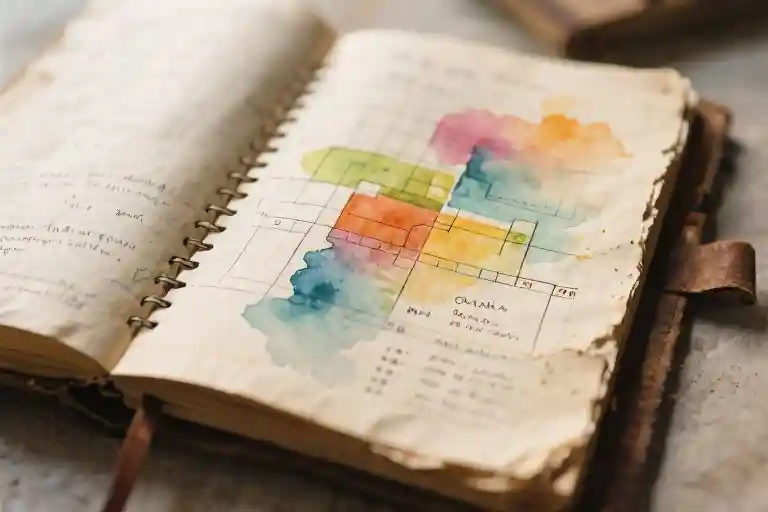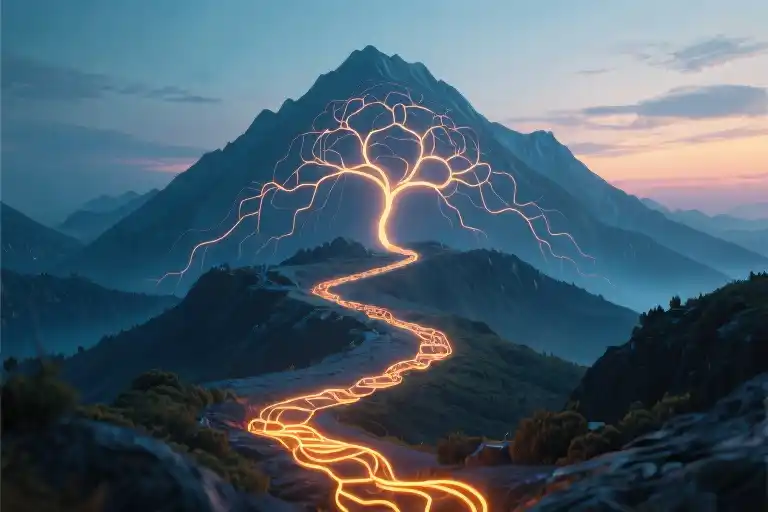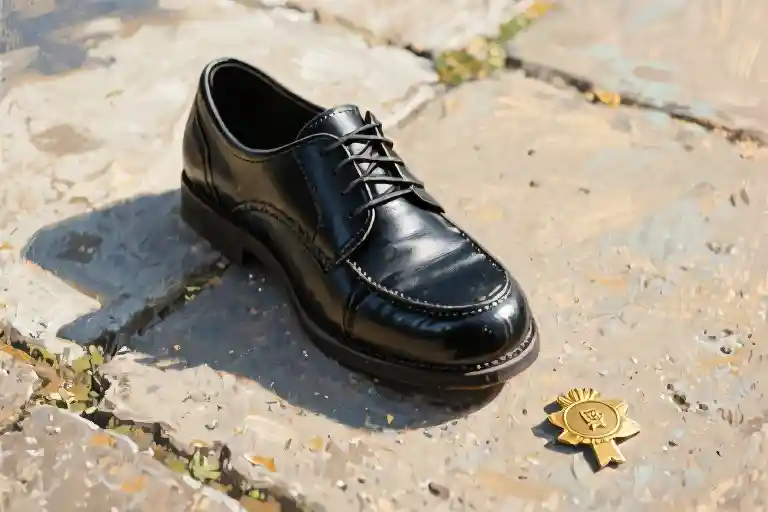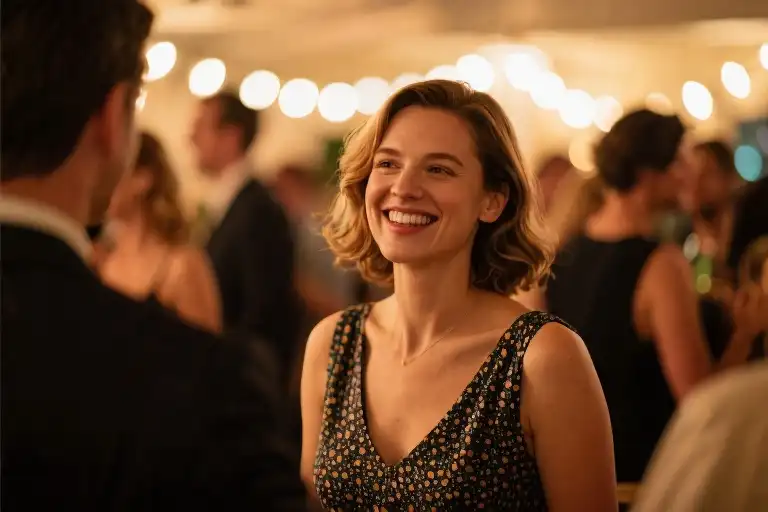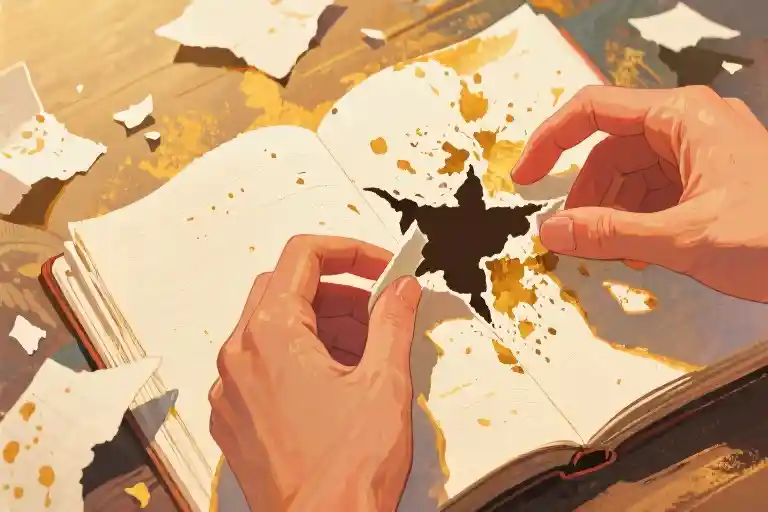I thought growing up meant becoming someone. Someone with answers, with direction, with that quiet certainty I saw in the eyes of adults when I was small. I had it all mapped out at twelve – the university I’d attend (red brick buildings, autumn leaves crunching underfoot), the degree I’d earn (something noble and impressive), even the way I’d wear my hair when I finally became that put-together woman. The notebook where I sketched these dreams still sits on my childhood desk, its pages filled with colored arrows pointing toward a future that felt inevitable.
There was power in that certainty. I could argue with my debate coach about political theory at 14, certain I’d major in it. At 16, I’d lay out my ten-year plan during sleepovers, defending each choice with the unshakable confidence of someone who’d never had to actually live with consequences. My friends would groan – “Not the life lecture again” – but I saw their sideways glances of admiration. Back then, uncertainty felt like something you outgrew, like training wheels or baby teeth.
But here I am now, standing in the wreckage of all that certainty, picking through the pieces of plans that no longer fit. The acceptance letters arrived (just like I’d dreamed), the scholarship offers came in (better than I’d hoped), and suddenly the clear path forked into a dozen directions, each whispering different promises. That childhood notebook feels like a relic from someone else’s life – the handwriting familiar but the convictions foreign. The arrows don’t point anymore; they just spin in dizzy circles.
What nobody tells you about getting everything you thought you wanted is how much it can feel like losing something. The weight of these open doors presses harder than any closed one ever could. At least when a path gets blocked, the universe decides for you. But standing here with all possibilities available – each requiring a different version of myself to step through – I’ve never felt more stuck.
The strangest part? I miss that twelve-year-old’s arrogance. Not her answers (they were naive at best), but her courage in having them. Her notebooks didn’t have margins for doubt, her plans didn’t include contingency clauses. She believed in right choices and clear destinations in a way I can’t remember how to mimic. Somewhere between childhood and this suspended adulthood, I traded conviction for calculus – endlessly weighing variables that never quite add up the same way twice.
They call this the quarter-life crisis like it’s some cute phase, but nobody warns you how physical the uncertainty feels. It’s in the stomach-dropping lurch when someone asks “So what’s next?” It’s the way your throat tightens scrolling through classmates’ LinkedIn announcements. It’s the particular exhaustion of smiling through “You must be so excited!” when you’re just…terrified. The world celebrates these milestones as victories when they feel more like being pushed onto a stage without lines.
Maybe this is the secret adults kept: growing up isn’t about becoming sure. It’s realizing how much we’re all just improvising. The notebook arrows were never a map – just a child’s attempt to draw constellations between random stars. I don’t know when I’ll stop grieving that lost certainty, or if I’m supposed to. But perhaps this weight in my chest isn’t the absence of direction. Maybe it’s the presence of something real finally taking root – something messier, truer, and ultimately more mine than any childhood plan could ever be.
The Certainty of Fifteen
At fifteen, I carried my future in the back pocket of worn-out jeans – a folded notebook page with color-coded life milestones. Political science degree by twenty-two. Law school acceptance by twenty-three. Changing the world by thirty. The ink never smudged, the timeline never wavered.
I could argue my case to anyone who questioned it. At family gatherings when uncles suggested engineering, I’d counter with Supreme Court justice statistics. When classmates mocked humanities degrees, I’d recite verbatim from my dog-eared copy of ‘The Social Contract.’ Every rebuttal fortified the walls around my perfect plan, each counterargument another brick in the fortress of my certainty.
The notebook evolved into spreadsheets – scholarship deadlines highlighted in yellow, recommended LSAT prep books in green. I knew which coffee shops near campus had the best study lighting, had already bookmarked apartments within walking distance of my dream law school. My Pinterest boards weren’t filled with prom dresses but courtroom appropriate blazers and framed diplomas.
What strikes me now isn’t the ambition but the absolute conviction. How effortlessly I dismissed alternate realities. Psychology? A passing fascination. Education? Noble but not for me. Every potential deviation got neatly filed under ‘Distractions’ in my mental catalog. The path shone so clearly I could practically feel the graduation cords around my neck, the weight of a judge’s gavel in my hand.
That girl believed in cause and effect with religious fervor – study these specific books, join these particular clubs, earn these exact grades, and the future would unfold like a well-rehearsed ceremony. No phantom limbs reaching for abandoned dreams in midnight hours. No paralyzing awareness of all the lives I wouldn’t live.
It was a perfect plan… until the pages started sticking together, until the highlighted lines blurred into meaningless streaks of neon. Until growing up didn’t mean becoming someone, but losing the only someone I’d ever known how to be.
The Weight of Open Doors
There’s a peculiar kind of agony that comes with having options. I used to envy those who seemed to have their paths laid out before them – the med school bound kids with stethoscopes around their necks since middle school, the computer science prodigies who coded before they could ride bikes. Now, holding this scholarship letter in one hand and a rejection from my ‘dream school’ in the other, I understand why people freeze when faced with buffet tables.
The private university brochure shows manicured lawns and small seminar rooms where professors might remember your name. The state university website flashes images of crowded lecture halls and research opportunities that could ‘change the trajectory of your career.’ Both keep using the word ‘opportunity’ like it’s not just another word for ‘obligation.’
What nobody prepared me for was how physical this uncertainty would feel. My stomach knots when I try to imagine myself in either place. My throat tightens scrolling through course catalogs – the Political Science classes I used to fantasize about taking now look like accusations. ‘See what you’re giving up?’ they whisper. My childhood bedroom, once a sanctuary for big dreams, has become a courtroom where my past and future selves argue endlessly.
‘You should feel lucky,’ my aunt said last Sunday, squeezing my shoulder like she could press gratitude into me. And I do, in moments. Then the guilt comes – how dare I complain when others would kill for this choice? But comparison doesn’t quiet the panic that wakes me at 3 AM, heart racing as if I’ve already made the wrong decision somewhere in my sleep.
There’s a cruel irony in realizing that getting what you thought you wanted changes nothing. The scholarship didn’t bring clarity, just sharper edges to my doubts. Maybe this is what they never tell you about quarter-life crises – they’re not about lacking options, but about suddenly seeing through the illusions that used to guide you.
The psych major application still sits unfinished on my desk. Some days I open it just to watch my hands shake. Other days I resent it for existing, for suggesting there might be versions of me that won’t feel like failed attempts at adulthood. I’ve started dreaming about doors – not the metaphorical kind, but actual wooden doors that multiply whenever I try to choose one, until I’m standing in an endless hallway of possibilities.
‘Just pick something,’ my dad says, as if courage were the only missing ingredient. But what if the problem isn’t indecision, but finally seeing the truth? That no choice will give me back that childhood certainty, because the person who made those plans doesn’t exist anymore. That growing up might mean carrying this weight of open doors without ever knowing if you chose right.
Maybe this is what they mean by ‘adulting is hard’ – not the bills or the responsibilities, but the slow unraveling of every answer you used to cling to. The terrifying freedom of realizing nothing is predetermined, that even the dreams you thought defined you can be released without disappearing entirely. That you might spend years grieving versions of yourself that never got to exist.
Am I really for this? The question echoes differently now. Not as self-doubt, but as the first honest thing I’ve asked in months.
The Conversation With My Former Self
I catch myself staring at old notebooks sometimes. The ones where 15-year-old me had meticulously drawn life roadmaps with colored markers – Political Science degree by 22, UN internship by 24, changing the world by 30. That girl wrote manifestos in the margins about justice systems she’d reform, psychology theories she’d disprove. She defended these dreams with the certainty of someone who’d never had to actually choose.
Where did she go, that version of me who could list twelve reasons why this path was The One? The one who rolled her eyes when adults said “you’ll change your mind”? I trace my fingers over her bubbly handwriting now and it feels like reading someone else’s diary.
Maybe growing up is realizing you were never that sure to begin with. That what felt like conviction was just the blissful ignorance of not having options yet. When the scholarship letter arrived, everyone saw it as validation – proof that my childhood plans had been right all along. But all I could think was: What if this golden ticket leads somewhere I don’t want to go?
Three AM thoughts keep circling: Did I ever truly want this, or was it just the loudest narrative available? The private university brochure shows smiling students in neat sweaters, but all I see are tuition bills my family would quietly struggle with. The state school website boasts “transformative chaos,” yet I can already imagine myself drowning in lecture halls of two hundred. Both paths whisper different kinds of failure.
Here’s the uncomfortable truth no commencement speech mentions – sometimes we don’t lose our way. We outgrow it. The plans that once fit like favorite jeans now pinch at the seams, and no amount of nostalgia stretches them back into comfort. That’s the real terror no one prepares you for: not failing at your dreams, but waking up to find they don’t fit who you’ve become.
Some nights I wonder if I ever believed in any of it, or if I just liked having answers when adults asked about my future. Maybe “I want to be a lawyer” was always shorthand for “I need you to think I have this figured out.” The heavier realization? I might have been running toward certainty as much as I was running from something else – the noise of other people’s expectations, the pain of not measuring up, the terrifying freedom of actually choosing for myself.
There’s a particular loneliness in this kind of crisis. When you’re mourning not a missed opportunity, but the loss of certainty itself. When you envy those who “failed” because at least their path is clear, while you’re stuck between open doors, paralyzed by the privilege of choice. The cruelest joke? You can’t even properly grieve because everyone keeps congratulating you on your good fortune.
So I fold up those old notebooks carefully, like handling artifacts from a civilization that no longer exists. The girl who filled those pages isn’t gone exactly – she’s just become someone more complicated than her twelve-point life plan allowed for. And maybe that’s the conversation we needed to have all along. Not “which path is right,” but “who am I becoming in this unbearable space between?”
The Weight of Choices
The fatigue settles in my bones like a slow-creeping tide. I’m tired—not the kind that coffee fixes, but the kind that makes your eyelids heavy even after twelve hours of sleep. Tired of nodding when people say “you must be so excited” about the scholarship. Tired of laughing awkwardly when relatives ask about my “bright future.” Tired of scrolling through campus photos while my stomach knots itself into new shapes.
Three a.m. thoughts have become familiar companions. They whisper in rotations:
- Tired of pretending the uncertainty doesn’t keep me awake
- Tired of rehearsing answers for questions no one’s brave enough to ask
- Tired of measuring myself against versions of me that no longer exist
The exhaustion isn’t from lack of options, but from their abundance. Two university acceptance letters glow on my desk—one crisp ivory, one bold navy—each representing a fork in the road I’d once imagined straight. Private university means smaller classes, quieter libraries, the comfort of known quantities. State university promises chaos that terrifies and thrills me in equal measure: crowded lectures, cutthroat competition, the terrifying freedom of anonymity.
What nobody prepared me for was how adulthood would feel like standing in a downpour without knowing which direction leads to shelter. The paralysis isn’t about lacking information—I’ve attended every open day, compared every curriculum—but about lacking certainty. About waking up gasping from dreams where I choose Political Science only to find Psychology textbooks gathering dust under my bed.
Social media makes it worse. Scrolling through peers’ triumphant “I’ve found my calling!” posts feels like watching everyone board trains while I’m still studying the timetable. The unspoken rule seems clear: growing up means transforming into someone decisive, someone whose LinkedIn profile tells a coherent story. Yet here I am, my resume reading like a choose-your-own-adventure novel with all the pages torn out.
Maybe that’s the cruelest joke of adulthood—realizing that “figuring it out” was never a one-time event, but a continuous stumble through fog. The version of me who color-coded career plans at sixteen would be horrified. She believed in clean narratives: Study X → Master Y → Become Z. But the present reality looks more like alphabet soup spilled across a map.
This isn’t the kind of growing up they showcase in graduation speeches. There’s no applause for admitting you feel more lost with every passing year. No certificates for surviving the quiet crisis of watching childhood certainties dissolve like sugar in tea. I used to think maturity meant having answers; now I know it means making peace with questions that may never resolve.
Some nights, when the pressure builds behind my ribs, I allow myself to grieve. Not for missed opportunities, but for the girl who believed in linear paths. Who thought adulthood came with an instruction manual instead of this blank notebook where every page begins with “What if.” The grief isn’t sharp—it’s the dull ache of releasing a dream you didn’t realize you were still clutching.
Perhaps this is the real transition: not becoming someone certain, but learning to carry uncertainty without collapsing beneath its weight. To accept that doors will keep appearing long after we think we’ve chosen our hallway. That growing up might simply mean trading the illusion of control for the courage to say, “I don’t know yet”—and believing that’s enough.

